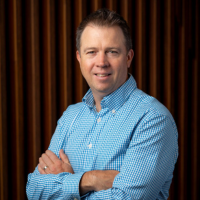In this current heightened scramble for graduate talent, it has become evident that two things have changed – employers have an increased appetite for graduate hires AND graduates have options with how and where they apply for roles.
In what was historically a graduate employer's market, the market has shifted, and employers need to think differently to keep up. This year, graduate employers across the country have experienced around a 30% decrease in applicant volume. New employers have entered the market. Candidates are withdrawing from recruitment processes, and reneges on offers are rising. But for some reason, we are doing the same things. Maybe it's time to talk about engagement, not assessment.
Like never before, graduate employers are asking questions about how to make the recruitment and onboarding process more engaging, leaner, and a positive experience for both parties to ensure we can retain candidates through the recruitment and offer process and retain them post offer for their actual commencement.
I've personally heard of more than a few cases. For example, in the last month, graduate applicants withdrew from a recruitment process (and ultimately from being considered for employment with that same employer) because they had to do psychometric testing, prepare for a case study or attend a full-day assessment centre. I'm not saying these aren't valuable elements of a selection process; they absolutely are! But these graduates have options and are making the most of a hot market.
Graduates are yearning for engagement and a two-way process. They want to feel valued and connected to their potential employer. There are some things employers can adjust to ensure better engagement and a stickier process. Here are a few suggestions:
- Competency Framework – if we have established values and behaviours, are we mapping our selection process to these in a targeted way?
- Online Application form – only capture what we need! Apply automatic scoring and weighted responses where possible and look at removing unnecessary free-text responses that we are not reviewing and don't form part of our shortlisting process, especially if it is time-consuming for a candidate to apply.
- Psychometric Testing – can be lengthy, combining cognitive and personality profile testing. Can we get away with brief cognitive abilities testing only – especially if we are not referencing the results of other tests? Even consider removing this process if the application volume is low.
- Video Interviews – introductory videos about your company that ensure candidates feel immediately connected and provide insight into company culture and people. Make it relatable and authentic.
- Assessment Centres – let's call them 'Engagement Centres' - less about solely assessing candidates in a room where they feel on edge and highly competitive. Allow time to meet key company representatives and hear about unique company insights and culture. Maybe even run a social event or function which allows connection and fun!
Then - once all the hard work is completed and offers are made and accepted – the engagement work really starts. It is no longer enough to send 'good luck for your exams' cards in September or a zoom call with a hiring manager to say hello. The start date for graduate development programs, social connection events and company interactions should be shortly following the offer process, not the first day of induction in January. This is not just for engagement but also to build confidence and prepare the graduate cohort to be better equipped for the study-to-work transition.
We are finding that we are increasingly being asked these questions by companies that we are working with and, interestingly, from companies who are looking to start their first structured graduate program, including:
- How can we do more to engage talent? We are prepared to think differently about our selection process and make it leaner.
- How can we retain our offers and ensure we get a whole cohort commencing? We want to do more between the offer and induction process to keep graduates 'warm'.
Companies managing this changing landscape well are the bold ones who are thinking differently. These are the same companies that will ultimately reap the rewards in the race for graduate talent.
Rohan Holland
Graduate & Employability Programs Manager

Submit a comment